

Hybrid Magnetic Generator +
State-of-the-art patented technology that can be combined with:
Solar energy, wind turbine, grid, geothermal, green hydrogen, biodiesel or natural gas
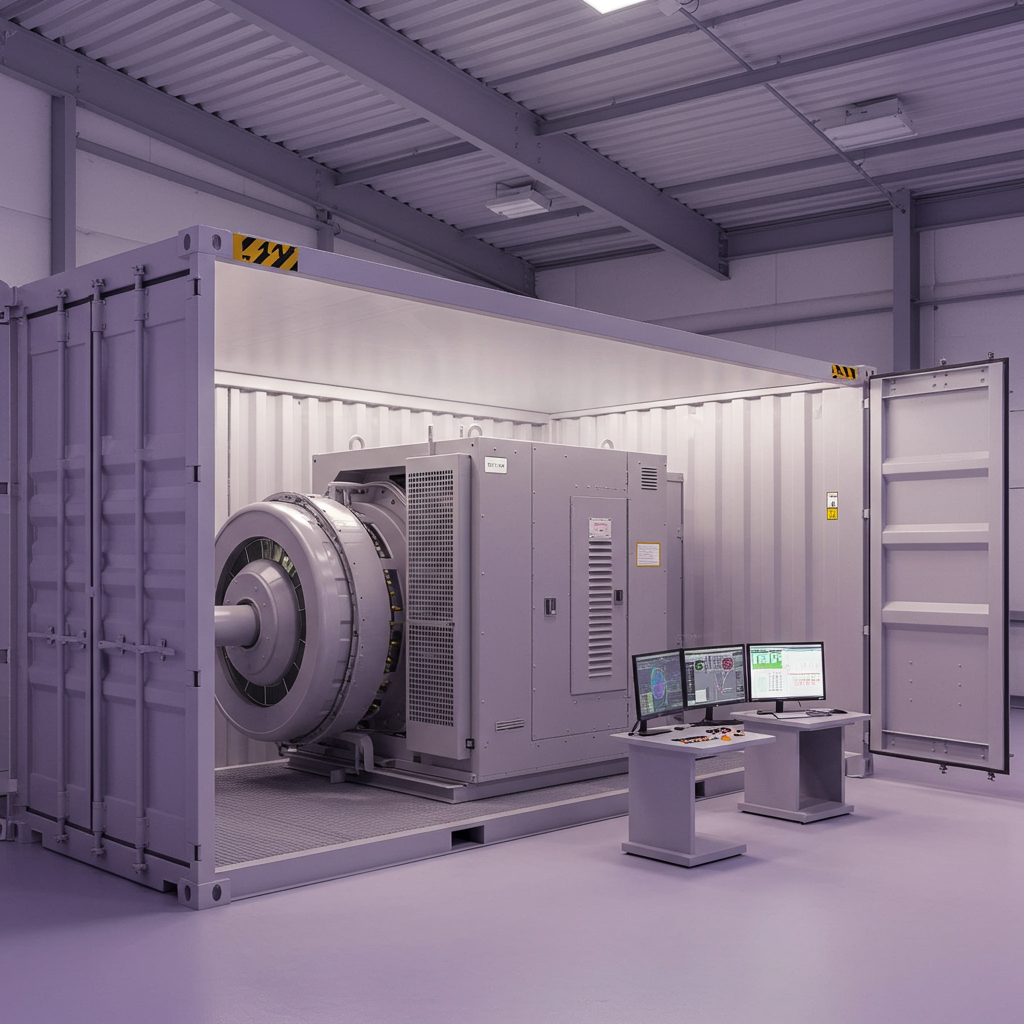
→ Tested technologies that are integrated and optimized with patented inventions to generate Green Energy. At any scale, within a reduced physical space (40' container) without any environmental, visual or acoustic impact while reducing maintenance costs and increasing reliability.
→ Opportunity and means to benefit from a significant reduction in energy costs and almost 100% reduction of pollutants and greenhouse gas (GHG) emissions while saving money and taking care of the environment at the same time.
→ The result of collaboration between engineers, inventors and researchers of the Hybrid Magnetic Generator + RiDGE and its complementary technologies, they lay the foundation for our solutions of Green Energy..
HMG Solution (Hybrid Magnetic Generator)
The GHM RiDGE introduces a clean and self-sufficient source of energy based on an innovative system
Our generator is scalable and adaptable to all types of sectors and demands.
Independent system from any public grid.
Sell the surplus to a commercial grid.
Its installation does not depend on geographical or climatic conditions .
The patents used were acquired in
July 2021 and are available on request.
What the Experts say...
Measurable Impact
Each RiDGE 1 MW Magnetic Hybrid Generator (GHM) unit avoids 3,504 tons of CO₂ and GHG per year, which is equivalent to taking an average of 870 cars off the road each year.
🔹 Annual output of 10 MW → Reduction of 35,040 tons of CO₂ and GHG.
🔹 Footprint offsetting time → In less than 7 days, each GHM offsets its manufacturing impact.
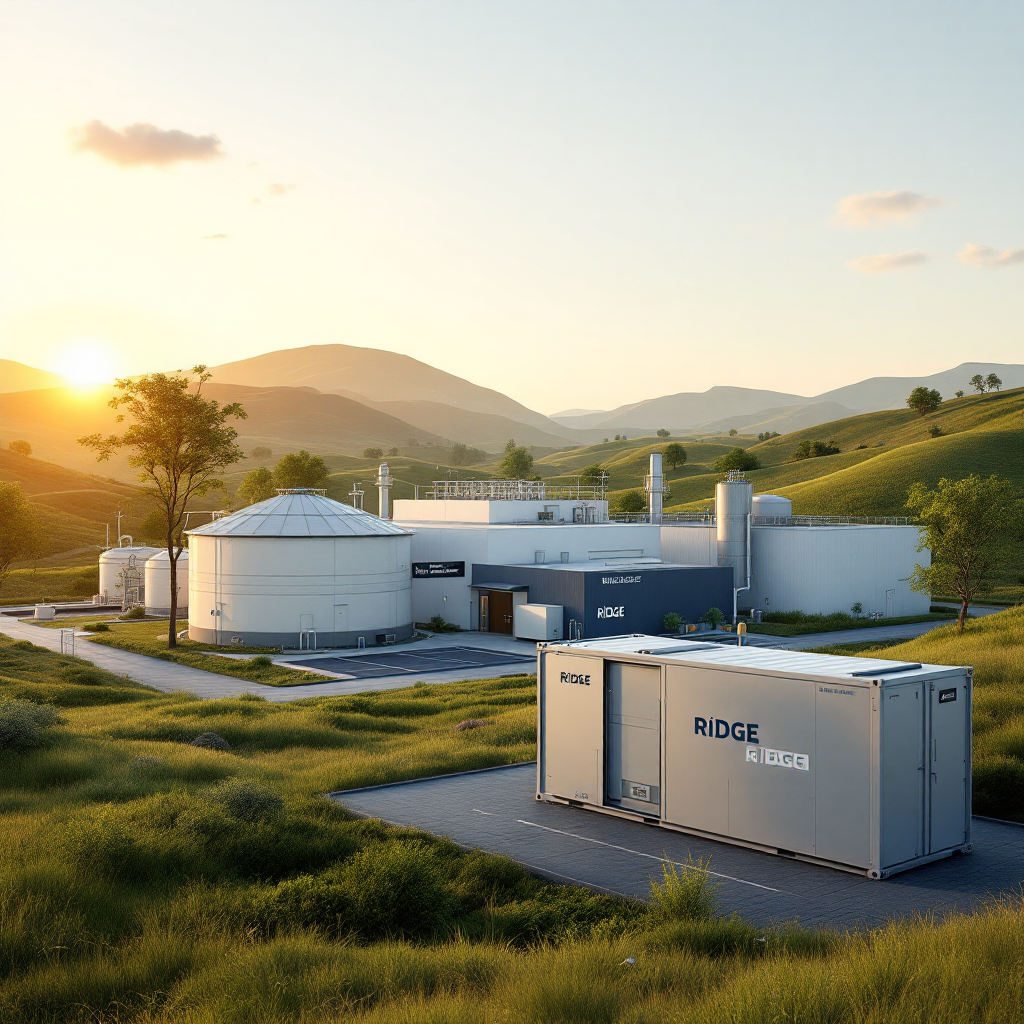
→ Tailor-made solutions according to the customer's needs and the origin of the "waste" produced: human and/or animal wastewater (slurry).
→ Opportunity to benefit from a significant reduction in production and energy costs, reducing almost 100% of pollutant and greenhouse gas (GHG) emissions.
→ Preservation of the environment through the production of green hydrogen and water.
❑ Competitive processes: The treatment plants are designed for this purpose allowing us to dispose of the purines, obtaining greenH2 resource and drinking water at a lower price than electrolysis of the agua.
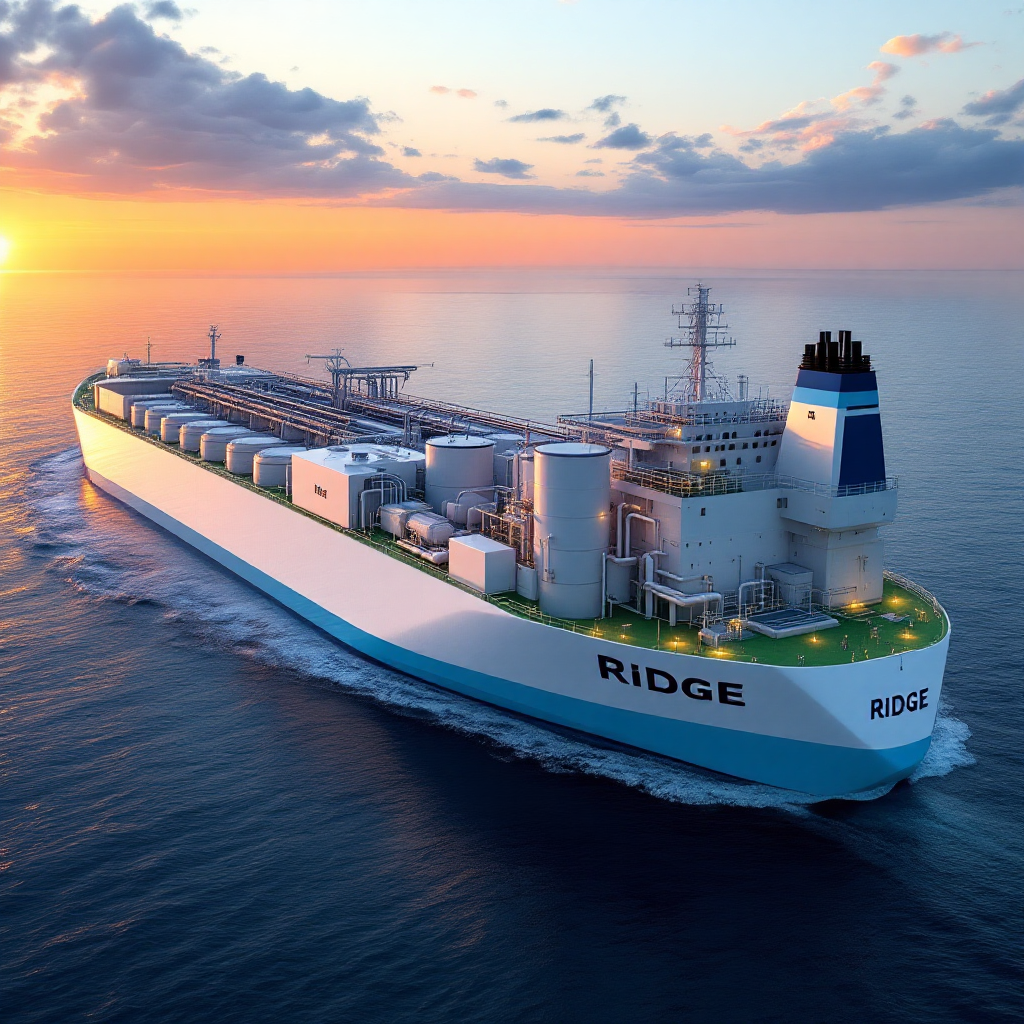
→ Potable water production can range from 2,000 m³/day to 24,000 m³/day, or from 10,000 m³ to 120,000 m³ every 5 days, depending on the draft of the destination port.
→ Single-hull oil tankers are repurposed and recycled following circular economy principles. We maximize integration by hybridizing power generation systems with reverse osmosis plants or high-pressure evaporators for water desalination.
→ A clean and safe water supply system is built to provide access to potable water in isolated environments, such as remote archipelagos, while preserving the surrounding environment and generating wealth and local employment.
The Ship → Circular economy.
Monohull tanker: Obsolete by legislation for their original purpose, they are recycled and reused. Up to 180 meters length, 30 meters beam and 50,000 DWT designed as tanker. Equipped with Hybrid Magnetic Generators.
Environmental protection. One step further.
Consistent, efficient and effective: Desalination takes place offshore, dissipating the brine far from the coast, protecting coastal estuaries, coral reefs and sensitive marine habitats where protected species live.
Energy Green. ZERO CO2 & GHG emissions.
Magnetic Hybrid Generators: Power both the ship's mobility and the desalination plants and all equipment requiring energy.
Desalination plants → N+1. Sea-friendly.
Desalination: 12 desalination plants produce water while one replaces those that are shut down for cleaning and maintenance, of the other 11.
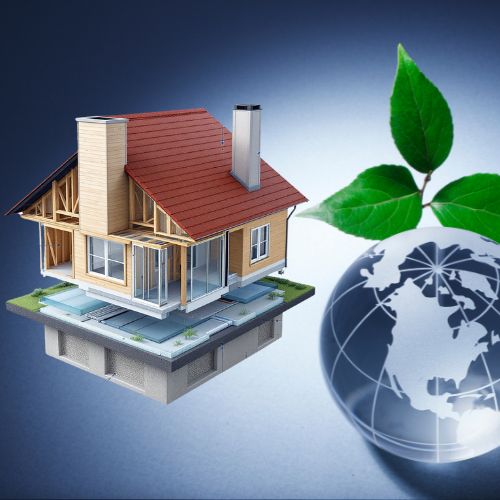
→ This project is the result of a collaboration with engineers, inventors, and researchers, through which we’ve taken integration to the next level-transforming the Envelope Construction System (micropiles, walls, and roofs) into an Active Element within that integration, together with our Magnetic Hybrid Generator.
→ An opportunity and the means to benefit from a significant reduction in energy costs and nearly 100% elimination of CO₂ and greenhouse gas (GHG) emissions-saving money while protecting the environment at the same time.
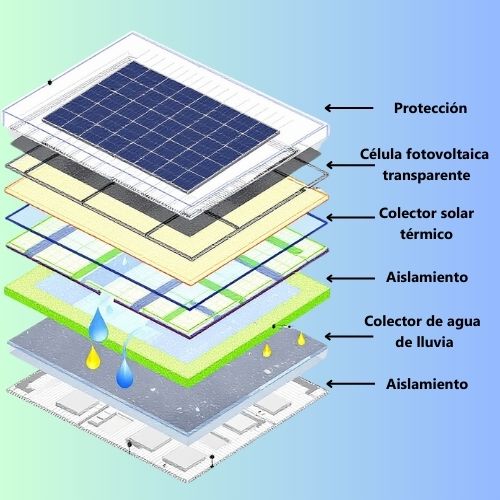
→ This project is the result of a collaboration with engineers, inventors, and researchers, through which we’ve enhanced system integration by turning the Envelope Construction System (micropiles, walls, and roofs) into an Active Element within that integration-alongside our Magnetic Hybrid Generator.
→ It offers both the opportunity and the means to significantly reduce energy costs and nearly eliminate CO₂ and greenhouse gas (GHG) emissions-saving money while protecting the environment.
Green Energy. ZERO CO2 & GHG emissions.
The main principles used in the construction of roofs, according to the diagnosis made during the preliminary design, are the following:
❖ Non-potable: Irrigation or toilet cisterns.
❖ Potable: Consumption.
Wind pressure compensation on the roof.
If necessary, the roof can be equipped with aerodynamic systems and designs that
compensate for wind pressure,preventing it from tearing off the solar panels and the roof.

Subsoil with geothermal management → ATSI
Autonomous Thermal Selective Storage.
Once the temperature has been captured and/or heat transformed into cold through the Thermal Solar Equipment, this thermal energy will be kept constant in Independent Accumulators. These are located underground, serving as the foundation, with a design that optimizes the exchange of stored temperatures in various PCMs (Phase Change Materials), and each Accumulator will meet a specific thermal demand according to its intended use.
Integrated Energy Management
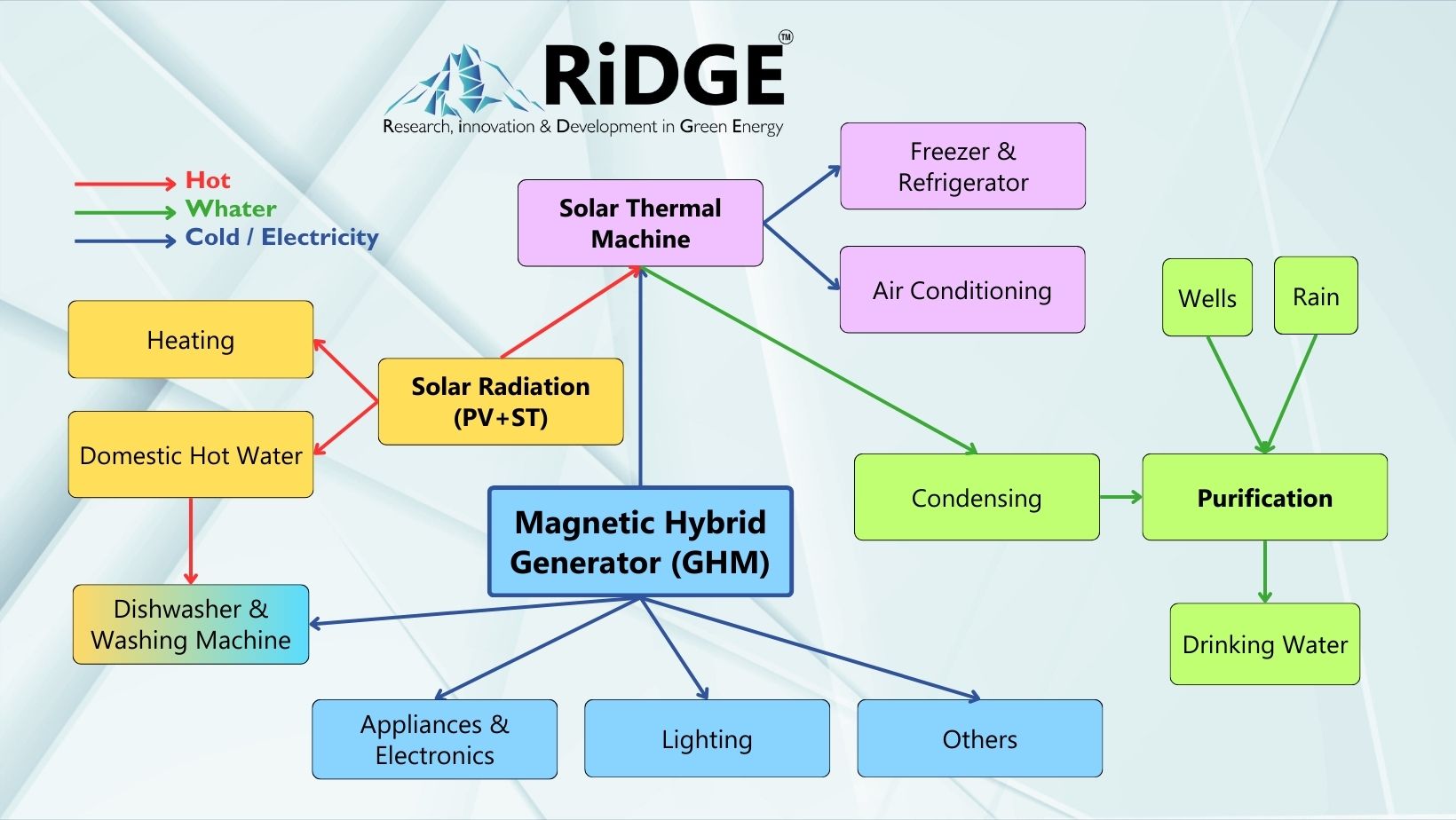
Advantages of Self-Sustainable Buildings.
nZEB (nearly Zero-Energy Building)
It does not consume fuel, so there is no waste to handle.
No toxic emissions to the environment or noise pollution.
Low maintenance costs at competitive economic conditions.
Zero emissions allows you
to benefit from tax exemptions and qualify for carbon credits.
Adaptable to local climatic conditions and resistant to earthquakes and Cat. 5 hurricanes.
Scheduled turnkey delivery
[consult delivery times].
Irradiación Solar Mundial
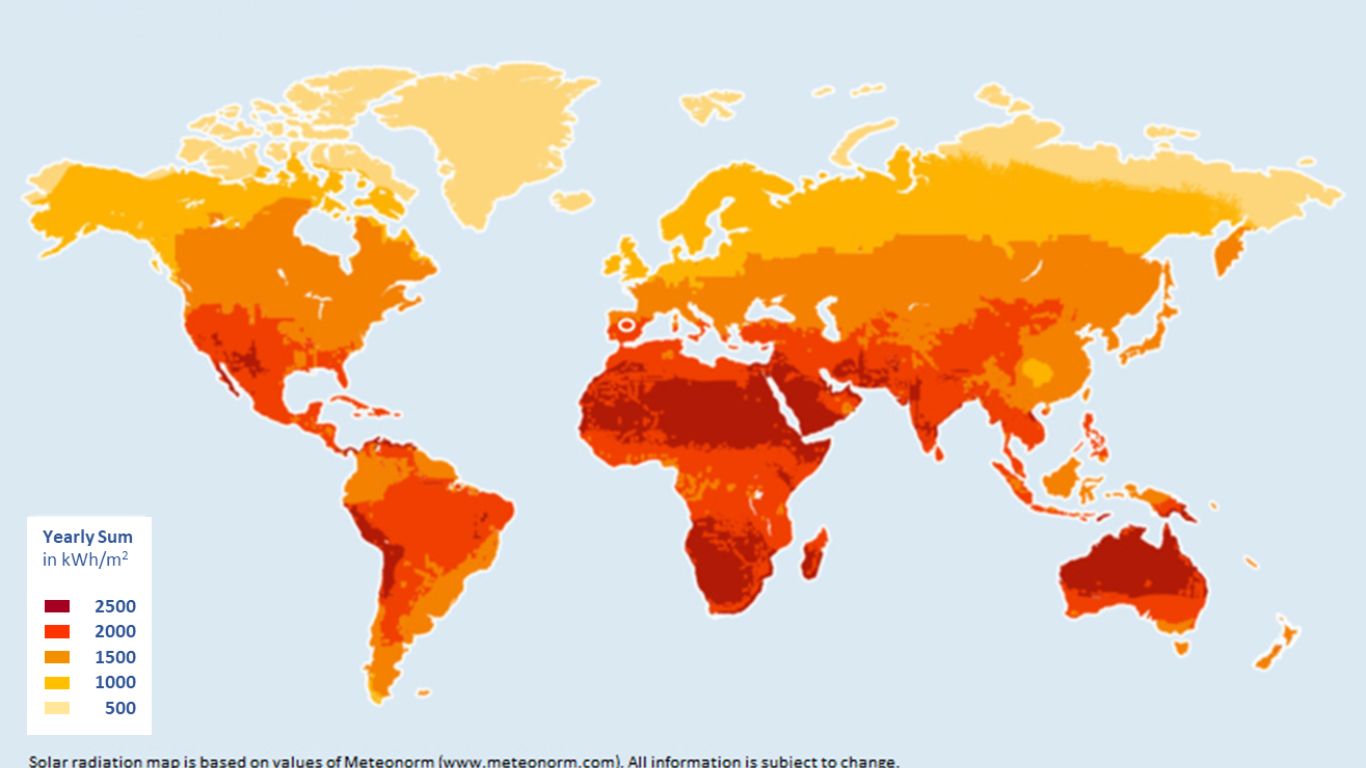
In mid and low latitudes, there is an annual availability of between 2.000 kWh/m² and 2.500 kWh/m².
The minimum energy demand required to meet the comfort needs of a household is 109 kWh/m² per year.
AI - Cloud - Blockchain - Quantic
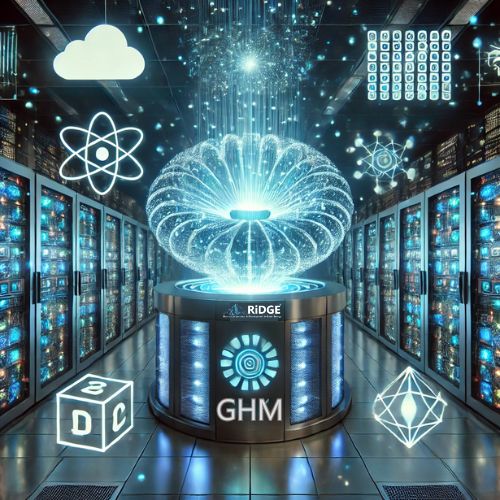
The Problem: The Energy Challenge of Data Centers
Data Centers consume around 2–3% of global electricity, with growth expected due to AI and quantum computing. Cooling and uninterrupted power supply account for up to 40% of their operating costs.
Environmental regulations, such as the net-zero emissions target by 2030 in the EU, require a shift towards sustainable and efficient energy solutions.
→ RiDGE is once again open to establishing strategic alliances with emerging companies to build a better future. This requires efficient, effective, and coherent energy solutions that no one in the world can ignore today.
→ GREEN AWARENESS: Relentlessly seek the best solutions, do everything possible to respect the environment, and optimize all resources, products, and by-products to reinvent the path to excellence every day.
→ WIN-WIN: Establish honest and solid strategic alliances with top-tier companies to build long-term relationships where everyone benefits.
Data Centers urgently need energy efficient and sustainable solutions to support the AI, Blockchain and Quantum Computing revolution.
🤝 GHM is more than an alternative, it is a strategic partner that transforms the way Data Centers operate, reducing costs, improving efficiency and ensuring their sustainability in the digital future.
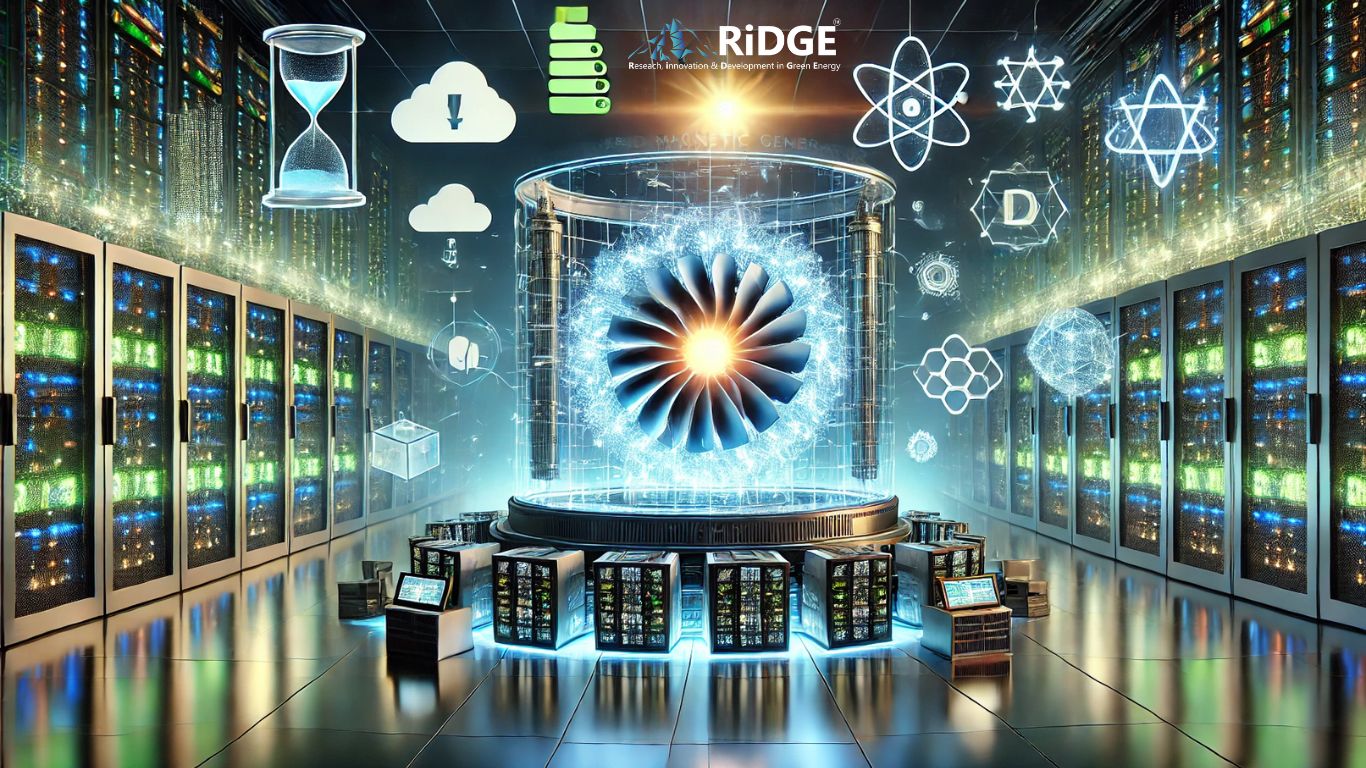
💡 The Solution: GHM as a Strategic Ally
The Magnetic Hybrid Generator (GHM) offers a stable, clean and highly efficient power supply,
optimizing consumption in critical infrastructures.
Key Benefits of GHM in Data Centers
1️⃣ Uninterruptible Power Supply
🔹 Supports 24/365 operations without relying on the grid.
🔹 Reduces the need for diesel generators and battery backup.
2️⃣ Reduced Energy Costs
🔹 Decreases electricity costs by up to 30-50% compared to traditional sources.
3️⃣ Efficiency and Less Energy Loss
🔹 Energy conversion and storage with minimal loss.
🔹 Increased performance in high-demand environments, such as AI, Blockchain or Quantum computing.
4️⃣ Environmental Compliance
🔹 Facilitates Green Data Center certifications and reduces carbon footprint.
🔹 Enables compliance with EU and US energy efficiency regulation.
5️⃣ Scalability and Adaptability
🔹 Compatible with cloud, on-premise and edge computing infrastructure.
🔹 Support for the growth of quantum computing and decentralized data centers.